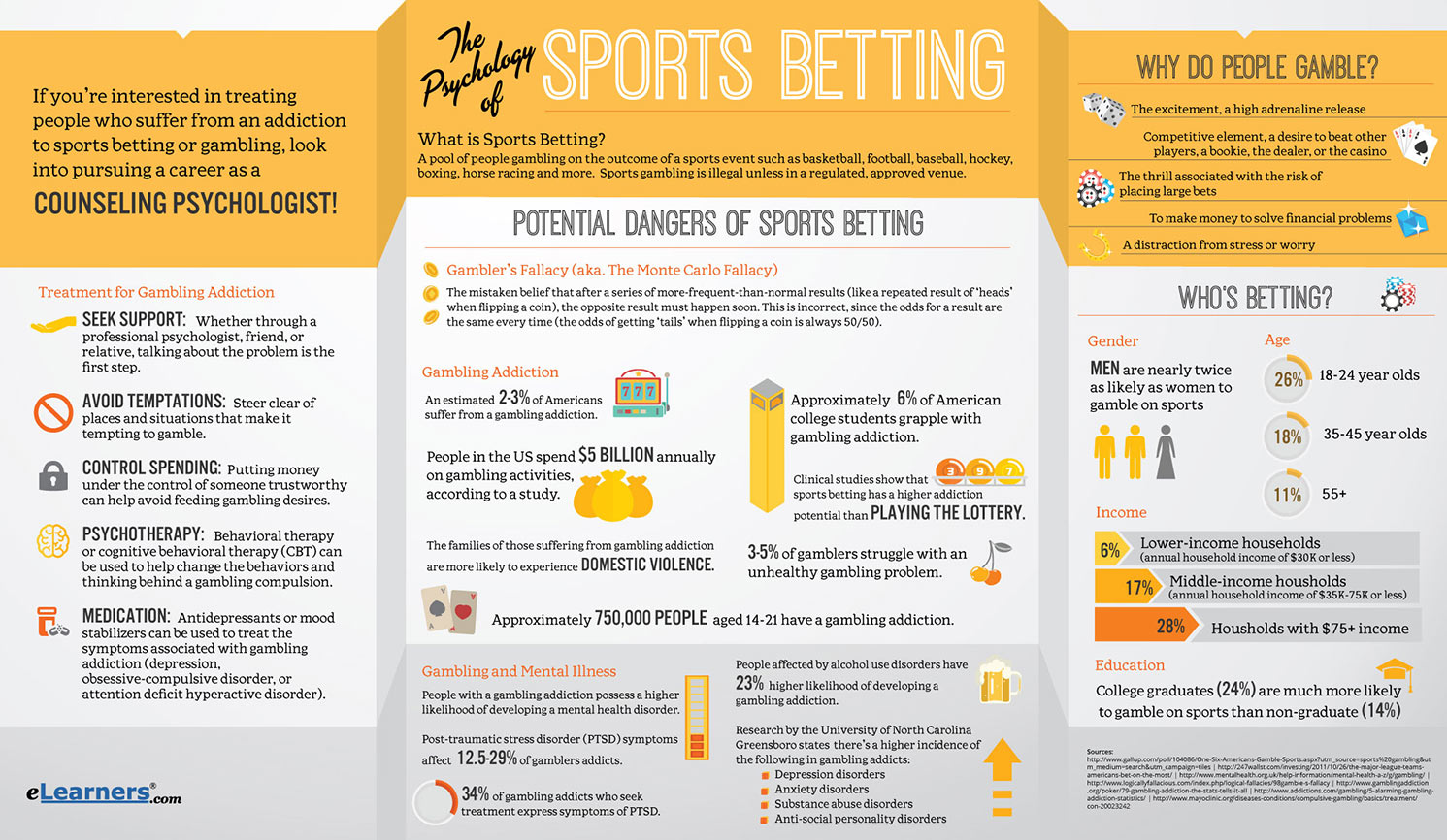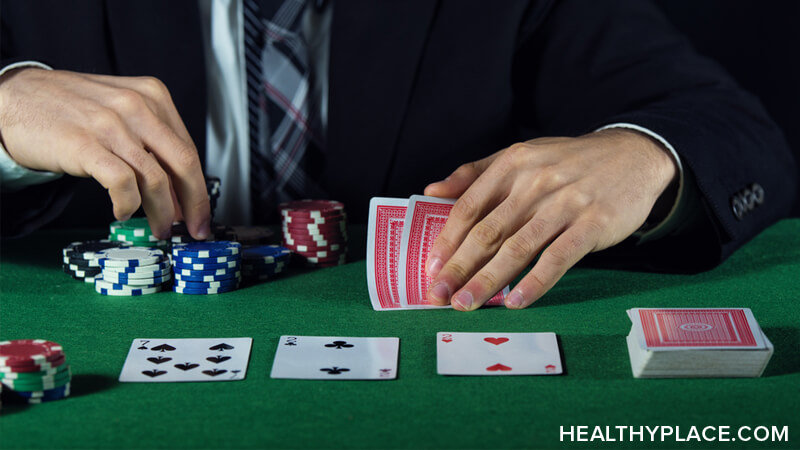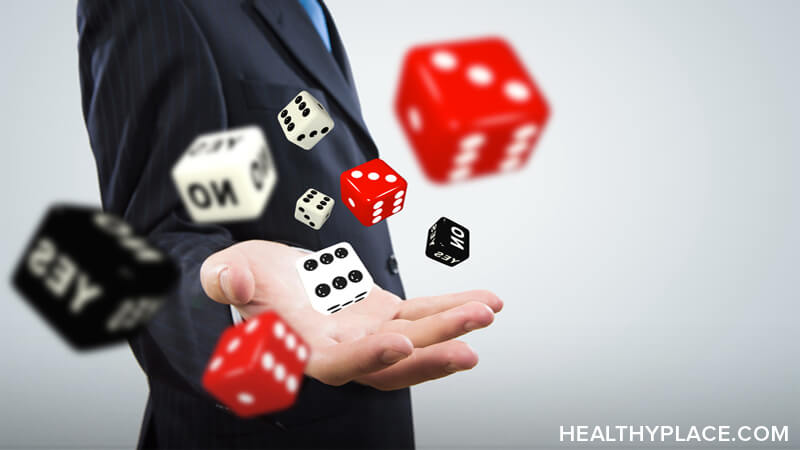Psychology Of Gambling Problem
Pathological gambling is more akin to gambling addiction but we found only a tiny percentage of our national participants could be classed as such. What we did report was that 0.9% of our sample. In addition to an array of psychological factors, problem gambling may also have some important biological determinants. The brain chemical dopamine is known to play a key role in drug addiction and may also be abnormally regulated in problem gambling. A meta-analysis of surveys of problem gambling prevalence in Australia and New Zealand with respect to concentration of electronic gaming machines. International Gambling Studies, 9(3), 225-244. Doi: 10.10; Blaszczynski, A., & Nower, L. A pathways model of problem and pathological gambling. Addiction,97, 487-499. A major risk factor for problem gambling is the type of activity to which people are exposed.
I’m a proponent of gambling for fun, but I’m not a fan of every single thing that people in the gambling industry do. The psychology of gambling is too often taken advantage of to the players’ detriment.
One example of this is the industry’s use of the term “gaming” to refer to “gambling.” The idea that they can just co-opt a term that’s used for different activities to try to make their business seem more legitimate is disingenuous at best and dangerous at worst.
But people like to gamble for fun, and I’m firmly in that camp. I’m not alone. I’ve seen estimates that suggest an overwhelming majority of Americans gamble. (The number of adults who never gamble is 20% or lower).
Some people, though, eventually start gambling compulsively. This makes gambling similar to other pleasurable activities like drinking or smoking.
And the psychology behind casino games and other gambling activities is based on selling a game that’s designed for the gambler to lose in the long run.
A cold, hard look at the odds behind most casino games would cause a sane person to fold their money in half and put it back in their wallet.
How the Brain’s Rewards System Works With Gambling
It would be hard to discuss the psychology of gambling without getting into some of the ideas about how the brain’s reward system works. If you didn’t get some kind of psychological kick out of gambling, you wouldn’t do it. Neither would anyone else.
Understanding this is a step in the direction of being a hard-nosed, realistic gambler.
The first aspect of gambling that seems obvious is that you don’t know what the outcome will be. Your brain is hardwired to enjoy activities when you don’t know what’s going to happen, especially if one of the possible outcomes involves a reward of some kind.
When you exercise, eat, drink alcohol, or make love, your brain releases a neurotransmitter called dopamine. This neurotransmitter is also released when you have money in action at the roulette table, or anywhere else in the casino.
In fact, psychologists have performed multiple studies and experiments measuring the brain’s release of dopamine when gambling. Not only does the brain release dopamine in the same way it would as if you were using drugs, but the brain physically changes when you’re gambling.
You can think of the dopamine that gets released in your brain as traveling through a road. That road becomes more sensitive with repeated use. Not only does gambling increase your craving for more gambling, it also increases your craving for other things that release dopamine (including alcohol, drugs, or any other activity that causes that dopamine release).
They’ve even done studies that demonstrate that gamblers who lose get the same hit of dopamine that winners get. Problem gamblers who chase their losses are living examples of this phenomenon in action.
Other Stimuli, Other Responses
The brain’s reaction to uncertainty when it comes to rewards and losses would seem to be enough to motivate gamblers, but casinos are in the business of maximizing profits. (All businesses are in the business of maximizing profits.)
The casinos use other stimuli to motivate their customers to gamble.
These stimuli include the sights and sounds of the casino. You can even see similar sights and sounds aimed at children. Notice what the game room at Chuck E. Cheese sounds like, then visit your local casino.
Live casinos, of course, have these sights and sounds in abundance, but even online casinos use the same stimuli. It would be dull to play at an online casino that didn’t include at least some of the flashing lights and music that you hear in a brick and mortar casino.
Scientists have done studies related to these stimuli, too, and they’ve come to the conclusion that the sights and sounds increase that dopamine release. In other words, the uncertainty of the rewards system combined with the music and lights have a synergistic effect.
A Skinner Box With a Lever
B.F. Skinner is one of the most famous behavioral scientists in history. Not all of his work relates to gambling, but some of it does. In particular, the Skinner Box applies directly to slot machine addiction.
Skinner did experiments with rats using boxes that dispensed cheese as a reward when the rats pulled a lever.
Obviously, the rats who got cheese every time they pulled the lever were more motivated to pull the lever than the rats who didn’t get cheese.
But there was a third box. This one dispensed cheese as a reward randomly. Sometimes, the rat got cheese, and other times, it didn’t.
You’d think that the rats who were certain of getting cheese would be the most motivated to pull that lever. But you would be wrong.
Now, let’s talk about slot machines. You’re the rat in the situation, the prize money is the cheese, and you have an uncertain result.
It’d be easy to say that people aren’t rats. But if you look at the research, this experiment relates to how the brain reacts to uncertainty.
And slot machines are the biggest moneymakers for the casino by far, even though they usually offer the worst odds in the casino. How else do you explain their appeal?
There’s a great book specifically about slot machines called Addiction by Design. It’s worth reading if you’re interested in the psychology of gambling.
The Gambler’s Fallacy
You’ll sometimes see this referred to by another name, like the “Monte Carlo” fallacy. Either way, it means the same thing.
It’s the tendency for a gambler to believe that if something happens more or less often than it should, the future results will even that out by having that something happen less or more often than it should.
In the case of random events that are independent of one another, this is a complete fallacy.
You have 18 black outcomes, 18 red outcomes, and two green outcomes at the roulette table. You’ve been betting on black, and black has hit eight times in a row.

Someone who believes in the gambler’s fallacy would think that a red or green result is now more probable on the next spin of the wheel. After all, the probability of black hitting nine times in a row is low indeed.
Psychology Of Gambling Problem Meaning


The problem is that you’re not betting on black coming up nine times in a row. You’re betting on the next spin, which is an independent event. The roulette wheel has no memory of what happened on the previous eight spins.
It still has 18 red numbers out of 38 total numbers, so the probability of a red result on that ninth spin is still 18/38, or 47.37%.
This is another example of a psychological shortcoming that causes gamblers to chase their losses. Even when you understand what the gambler’s fallacy is and the real odds, it’s tempting to bet the other way.
The gambler’s fallacy has been prominent in gamblers throughout history, but the most notable example happened at the Monte Carlo Casino in 1913. The roulette table saw an epic streak of black results, the ball landed on black 26 times in a row.
The odds of that happening are similar to the odds of winning the lottery, about 1 in 67 million.
The roulette players bet millions on red and lost. Their assumption that you’d see a streak of red results in higher proportion on the next batch of spins was entirely incorrect.
Applied Psychology in Gambling: The Game of Poker
Entire books about psychology and its application in poker have been written by psychologists. It’s impossible in the space here to provide anything like comprehensive coverage of the subject.
Psychology Of Gambling Problem Definition
But I can provide an introduction to how psychology affects poker.
First, think about the concept of tells in poker. If you’ve seen many movies about poker, you probably already know what tells are. You might even have an inflated sense of their importance.
A poker tell is just a physical clue that a poker player gives when he’s about to do something. For example, a player might have shaky hands when he likes his cards. (This is a common tell, by the way. Excitement about a hand results in the release of nervous tension in the form of trembling hands.)
You can spend all day looking for tells and still lose at poker. You can’t replace an understanding of hand strength, pot odds, and outs with close observation of the other players at the table.
Another example of psychology at the poker table is the tendency for players to tilt. This is the phenomenon of getting angry because you feel like you’re not getting the results you should be and changing your behavior as a result.
I used to play with a guy who wore scrubs to every poker game. I didn’t know him. I just used to run into him at the cardroom at Choctaw Casino in Oklahoma.
His nickname was “Doctor Tilt.” He’d get mad after a bad beat and start betting and raising with all kinds of weak cards. All you had to do was be willing to fold for a little while until you caught some decent cards.
He’d angrily bet into you with some dumb hole cards, and you’d win money from him two out of three times. He racked up some severe losses.
Psychology Of Gambling Problem Solving
This tendency to tilt, though, is also subject to psychology. Because the game of poker is random, someone who tilts sometimes gets paid off when he bets and raises with a lousy hand.
This reinforces his tendency to tilt.
Psychology Of Gambling Problems
Conclusion
Psychology Of Gambling Problem Strategies
The psychology of gambling is a huge subject, too huge to cover in any kind of depth in a single blog post. The best I could hope to do is provide an introduction to some of the effects of psychology in gambling.
Psychology Of Gambling Problem Involving
Were there better examples of the psychology of gambling that I could have used in this post? If so, please leave a comment and let me know what you think!